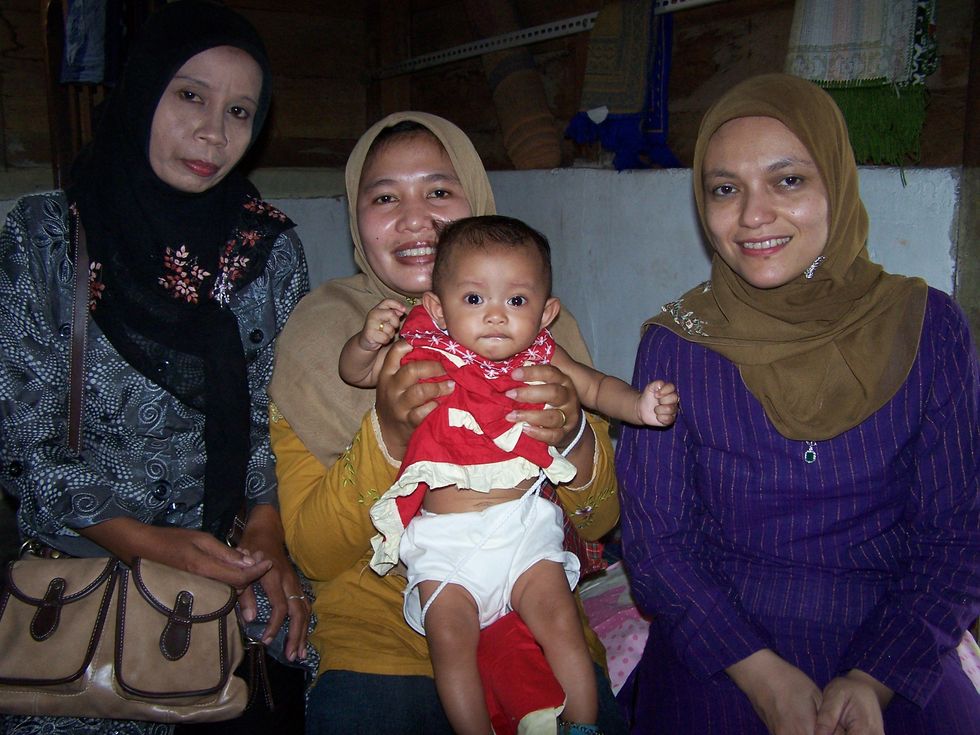When I think of political issues in the U.S., it can only leave me in a headache. The headache grows when I try to discuss these problems amongst peers and find too many people end up either angry and stubborn, or quiet and never say their piece. Our politics has come to a point where there is no such thing as a discussion, and people end up yelling over one another or post slander on social media. Worst yet is that I believe our media feeds a large part of this. On television, we'll see news anchors, professionals, politicians, and common citizens talking about their unrest and how everything in the U.S. is going to hell. This unrest is troubling and, if anything, is causing more problems than fewer, because people are losing trust and faith in those who cared to protect them and their families. It can almost feel as though the same values we try build ourselves upon are being violated left and right before our own eyes, and there's nothing you can do. I know I feel that way at times and feels so easy to give up, but it's in those little moments in between when I realize that there are still those fighting to make the world better. One of those people was Shadia Marhaban, a peace builder mainly working in Indonesia.
Towards the end of the school year at W&J I attended two of Ms. Marhaban’s sessions. One was a welcome reception of the exceptional peace builder, and the second one was her lecture in the Allen Ballroom regarding her work in Indonesia. I was impressed by her lectures and her work. I was impressed because her work was based on cooperation, something that feels intangible in the United States. The U.S. has a tendency to televise our differences in politics and to use this to create unrest as a solution for problems, but to have someone like Ms. Marhaban prove cooperation more useful, was eye opening. It was interesting because with someone like Ms. Marhaban using peace building strategies, we in the U.S. don't televise more about her cause and others like it, using peaceful techniques and advertise cooperation. Unfortunately, I think part of this problem may come from the U.S.'s past of being on top for so long. I think we've become so accustomed of the U.S. overcoming disasters with American citizens leading the future with innovation and now that we are coming across problems we can't fix with past tactics, it unnerves the populace.
Many of the hardworking Americans that would rely on old industries, like coal, lost their jobs and have some difficulty turning to newer occupations. Progressive minority groups find that it's harder to have the public have conversations over prejudice, and to get injustices retconned by their congress, only then to find that these conversations are not happening and many of their congress officials shrug these issues off. Scientists and science enthusiasts are facing swaths of people distrusting facts and regressing back to falsities like claims of vaccinations giving children autism. Americans have come so far that it is frustrating to know that now we are facing a threat that can destroy America, but not with missiles and military force, but with the clenched fists of frustrated Americans. Any more of this unrest and America may be doomed to a similar fate as Rome. So what can we do to prevent that?
When I mull over this question in my mind, I reflect on a quote that I remember from one of my favorite books, Space Chronicles by Neil DeGrasse Tyson. Mr. Tyson stated, "Until recently, space exploration stood above party politics. NASA was more than bipartisan; it was nonpartisan. Specifically, a person's support for NASA was uncorrelated with whether or not that person was liberal or conservative, Democrat or Republican, urban or rural, impoverished or wealth." I believe Mr. Tyson was on to something about American politics, especially outside of the realm of science. The U.S. is turning many social issues and exploration as a matter of politics rather than as a matter of "nonpartisanship," as he coined it. It may be that some of what we are doing is politicizing the issues too much, to a point where it is getting difficult to differentiate a political party's stance from the social matter. For instance, when it comes to the issue of African Americans being shot by cops, it is common for people to assume that if you are a Republican, then you don't support black lives, and that if you are a Democrat, you don't support cops. Yet that doesn't have to be the case, but it makes it so because we have politicized this social matter rather than put it under this realm of nonpartisanship.
I believe the reason Ms. Marhaban is successful is from working at this angle of nonpartisanship, where the issue of peace isn't a matter of conservatives versus liberals, but a matter of human compassion. Ms. Marhaban isn't alone in that fact either, because others like Malala Yousafzai and Desmond Tutu still fight for social justice and peace amongst people. Plus, many of us in W&J can do so as well. We can participate in active conversations on these social topics, we can attend sessions like the one I went to, and W&J also offers a robust Conflict-Resolutions Studies course. It doesn't have to only fall on a few to solve these problems, but can turn into the responsibility of the citizen to better their communities with active participation on these social matters.
P.S. I know that Mary Montigue will be returning to W&J and that she will hopefully give a lecture, so keep that in mind for all of the freshmen out there.
For more information regarding Ms. Marhaban you can visit Inclusive Security: https://www.inclusivesecurity.org/experts/shadia-m...






















